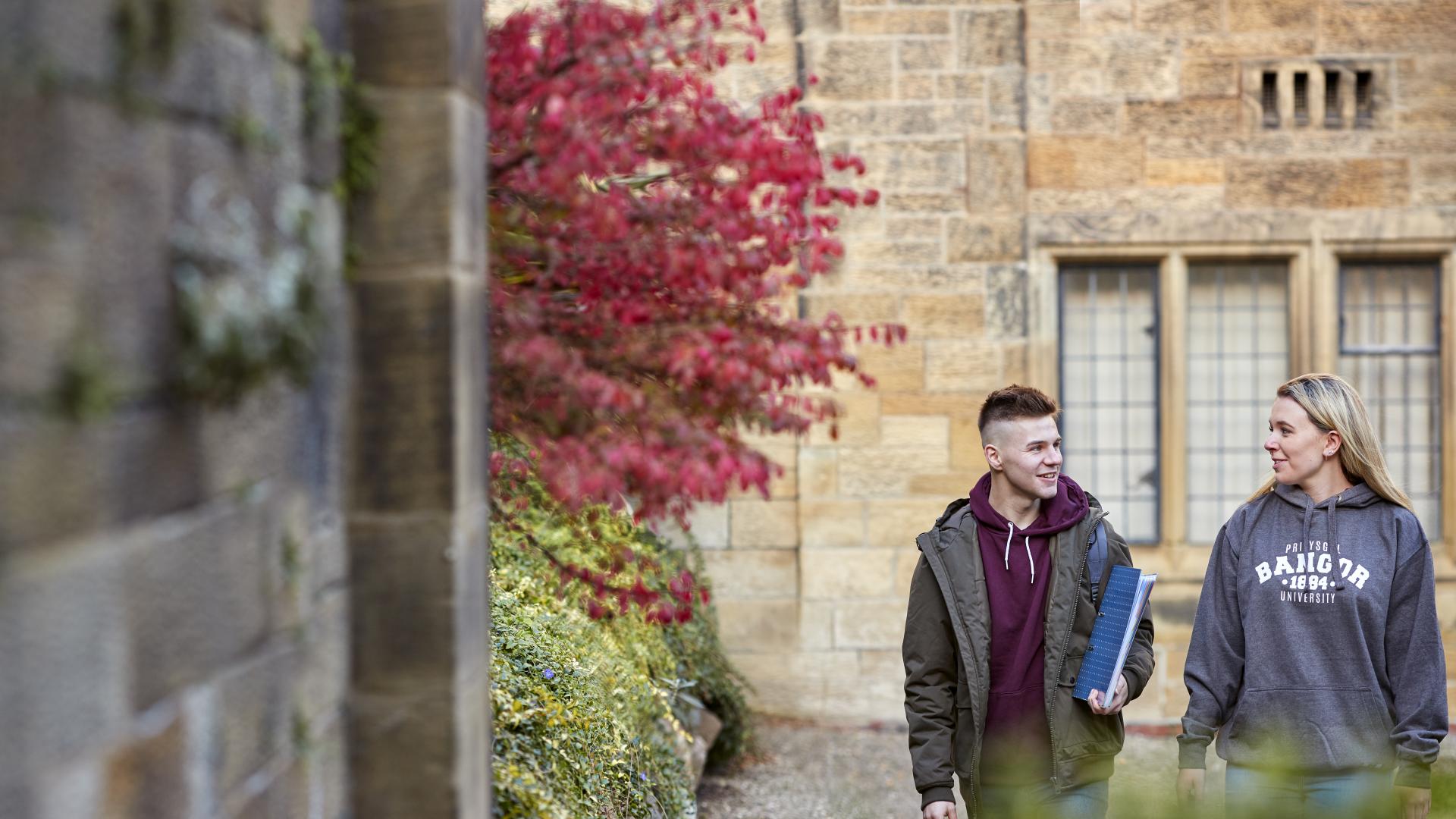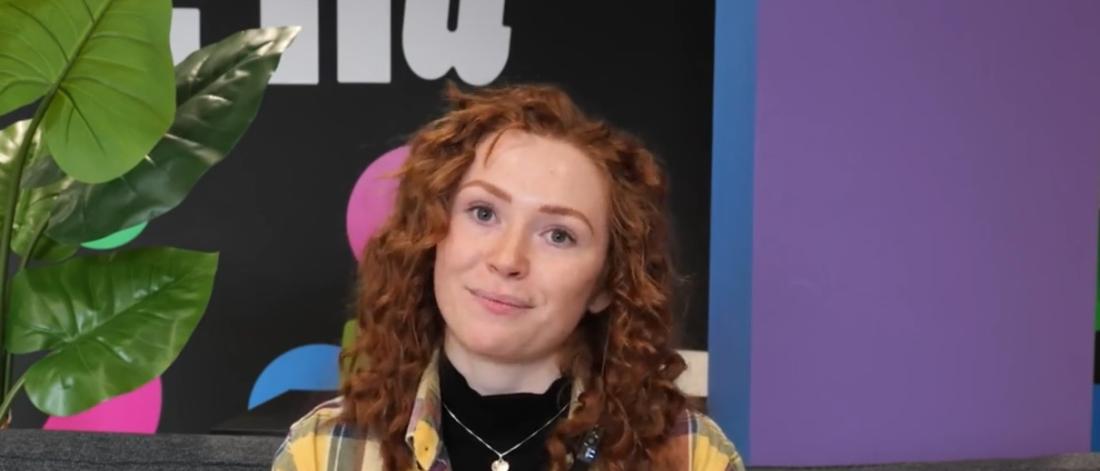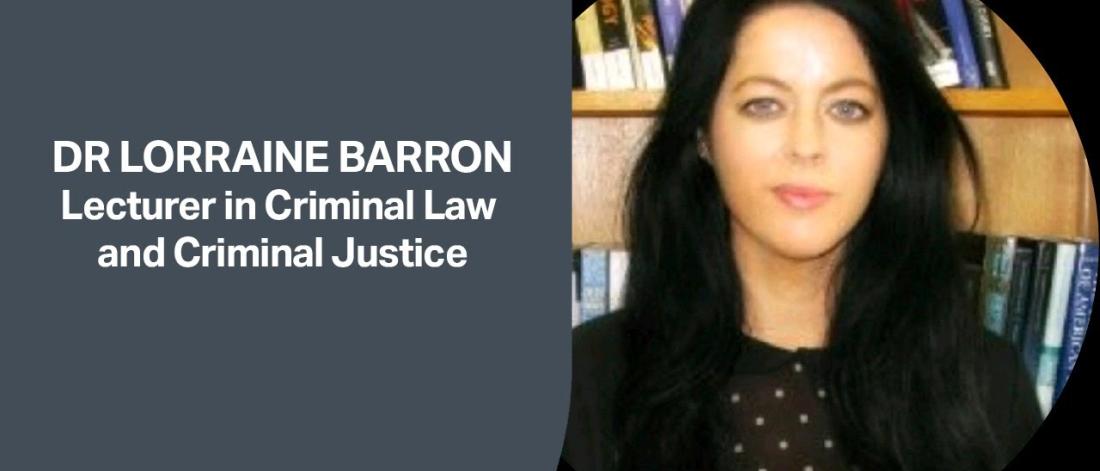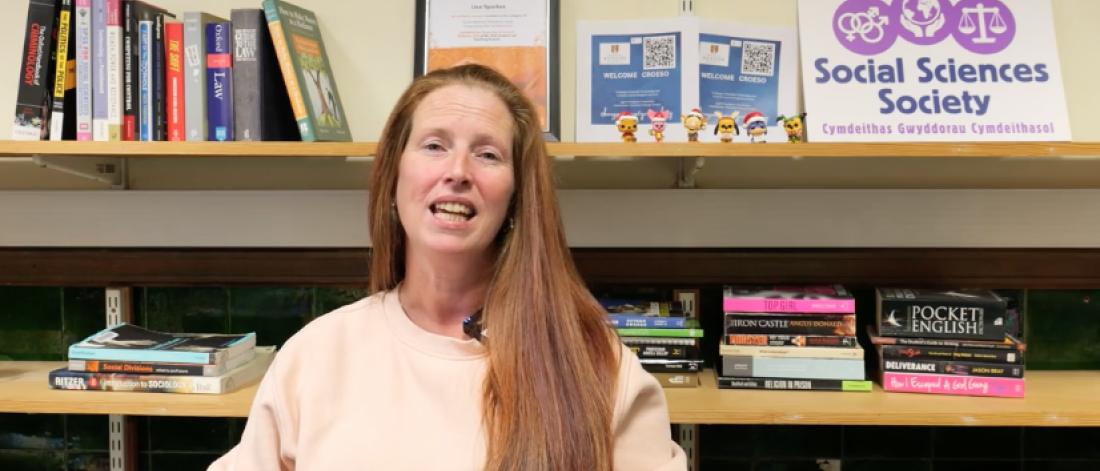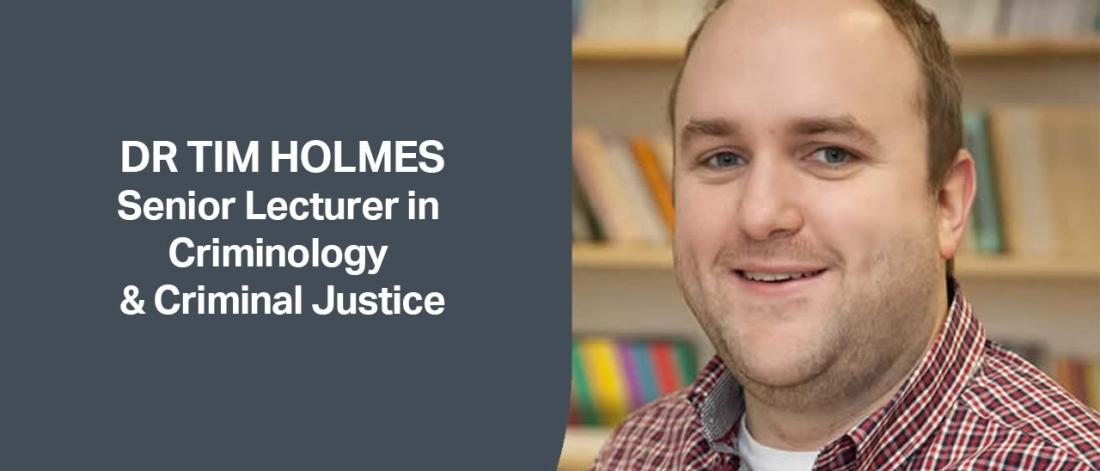Find the right Criminology and Criminal Justice course for you
Student Experience: Studying Criminology and Criminal Justice
I am studying Criminology and Criminal Justice and I am in the third year of my degree.
I chose Bangor University because it was close to home, as one of my options is was really fitting.
The course that I've chosen, when I looked at all the other courses that were of a similar kind within different universities, Bangor seemed the most fitting because of the module content that they were offering.
It was something that a lot of the other universities didn't seem to include.
The coolest thing about my course a couple of weeks ago, I got to do VR training, for controlling and coercive behaviour, which is a part of the domestic violence section of my course.
Yeah it is, there's been a lot of cool factors within the course.
I think what I enjoy the most about the subject is the variety of the things that we learn.
I think it's also comes down to like the the people that you meet on the course.
it's people you would probably never come across within your life.
But because you're studying something, you have a fascination in and your meeting people of the same mind, people that you're going to be friends with for the rest of your life because they enjoy the same things that you do.
Do you have a question about life as a Bangor University student? Our ambassadors will be happy to help you find the answer.
They can tell you more about studying here, about the amazing Clubs and Societies we have, and how they made friends and settled in to life at university as a Criminology and Criminal Justice student.
If you have any questions about the course, our lecturers are on hand to help. Below are some examples of frequently asked questions. Can you think of any more?
- What are the qualities of a successful Criminology and Criminal Justice student at Bangor?
- How can I prepare myself to study Criminology and Criminal Justice at Bangor?
- How will I know that Criminology and Criminal Justice at Bangor is the right choice for me?
Meet some of your teaching team
0:08 Hi my name is Dr Lorraine Barron and I'm a lecturer in Criminal Law and Criminal Justice
0:05 at Bangor University. When you're studying criminology and criminal law at Bangor you'll
0:09 get to explore criminal personalities and then you'll be able to see exactly what it is that
0:14 makes somebody a criminal or not so basically we'll be looking at is somebody born a criminal
0:19 or do we become criminal from the the outside environment and society that we're exposed
0:25 to as we're growing up. It's quite fun if you're sitting down with your family watching Jeffrey Dahmer
0:32 drama series or the news about serial killers then you can you know show off your knowledge that you've gained from
0:37 studying criminology and criminal law. I think one of the best things about teaching at Bangor University is the friendly environment because
0:47 it's a smaller University the staff have a lot more one-on-one student time so therefore we
0:54 have a lot more time to give to any matters that you have maybe pastoral or academic
1:00 issues that you have outside of academia and studying. Banger University is situated
1:06 just outside the Snowdonia range so if you want to take a break from your studies and get some
1:12 you know emotional well-being and physical well-being we're located very close to the
1:16 coast so if you prefer a walk on the beach or a coast day that's also a good really good
1:21 way to to unwind um and then you know prepare yourself for another week back at University.
[0:00]
My name is Lisa Suzanne Sparkes. I'm a lecturer in Criminology and Criminal Justice here at Bangor University.
[0:06]
So at the moment I'm involved in the introduction to criminology, where we look at the theoretical elements around defending.
[0:06]
We also look at the sociological elements of offending and the influences of our community and society.
[0:12]
Then I move on to the more interesting stuff for me, which is where I start to talk about things like torture.
[0:18]
Can we justify torture in the use of finding that information to stop criminality?
[0:24]
I also look at the re-offending rehabilitation and then we move on to punishment.
[0:30]
And we do have that discussion around the death penalty.
[0:36]
And that's where we pull the international arguments in. Does death penalty act as a deterrent to criminality?
[0:39]
Criminology and criminal justice isn't just around crime and the criminal justice system.
[0:46]
This is a very broad topic where you get to learn about different things.
[0:51]
So one of the things that I'm really interested in is female gangs in the UK.
[0:56]
One of the other topics that I really found interesting in my first year as a student was police culture and the effects of policing on society.
[1:00]
So it isn't a one size fits all.
[1:09]
It is a very broad area, and various topics are pulled in using different authors and different researchers within Bangor University.
[1:11]
It is a very beautiful building. The architecture history behind this building within the School of History, Law and Social Sciences,
[1:20]
we have a very strong community feel and that is develop through events, social events, employability events.
[1:28]
We have murder days, various things that fit within criminal justice, but we also look at what happens after you graduate.
[1:36]
So it's all about that community and all the organisations that we can pull in to make your experience that little bit better.
[1:43]
However, outside the university, you have the mountains on one side, the sea on the other.
[1:50]
Whether you like paddleboarding, kayaking, water sports, coasteering all the different things that you can do.
[1:55]
But if you're a bit like me and just like to relax, you can take a really nice picnic up to campus and just watch the world go by.
Meet Dr Tim Holmes
0:00 My name is Dr Tim Holmes, I'm a senior lecturer in criminology and policing and subject lead for
0:05 criminology and policing at Bangor University. I teach on the criminology program around cyber
0:11 crime and organized crime and in relation to policing I teach around the theory of criminal
0:18 behavior and digital policing. The main things that are interesting in the areas of criminology
0:24 I teach is the real diversity of topics that we get to cover when we look at cyber crime,
0:30 we're looking at all those different areas of the internet and how people can exploit people
0:34 through fraud through deception through online hacking and then when we come to the discussion
0:40 of terrorism and organized crime we're really looking at those distinct groups of people
0:45 who have organize their criminality to exploit people around the world and in many different
0:50 ways. The important thing with criminology is that it offers us an insight into the real fundamental questions
0:56 of right and wrong but also whilst acknowledge in the complex world that we live in.
1:01 A criminology student is really a jack of many trades we have to understand all of
1:07 these different issues education, health, mental health, poverty, international relations and
1:15 we filter this all through the lens of crime and Crime Control. Through this we have a real
1:20 distinct focus in our degree whilst opening you up to a lot of different areas for discussion and debate.
1:24 The great thing about being a Bangor is the people, I've taught a Bangor for a while
1:30 and there's a saying that if you're the smartest person in the room you're in the wrong room and
1:35 I'm really lucky at Bangor that I'm always in the right room. I'm surrounded by great
1:39 colleagues with real expertise in a very diverse range of areas of criminology. I've got expertise
1:44 in undercover policing, in crime and media, in the probation service, in the Police Service, all these
1:50 different experts bringing their work to bear in helping us teach students around really diverse
1:56 topics within criminology. The reason I teach at Bangor it's a really nice environment to learn in.

